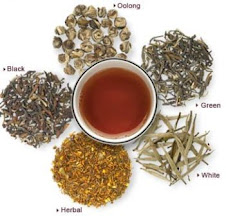Tea is the most commonly consumed beverage in the world after water. Among all varieties of tea - black, green, white, oolong, red, herbal - which one offers the most health benefits?
Benefits of Tea
Numerous studies have demonstrated the anti-cancer properties of antioxidant polyphenols. Some studies have suggested that tea's polyphenols may reduce the risk of gastric, esophageal and skin cancers, if one consumes 4 to 6 cups daily. Other studies have found that polyphenols help prevent blood clotting and lower cholesterol levels. One Japanese study found that green tea lowers death rates from heart disease.
Tea: Black, Green, White or Oolong?
Black, green, white, and oolong teas derive their leaves from a warm-weather evergreen tree known as Camellia sinensis. The leaves from this tree contain polyphenols. The more processing tea leaves undergo, the darker they will turn. Green tea and white tea are the least processed tea. According to Dr. Doug Balentine, Director of Nutrition Health with Lipton, white tea is derived from the young new leaves from the Camellia plant in early spring. Black and oolong teas are partially dried, crushed and fermented. As we have mentioned before, regardless of the processing method, black, green, white and oolong teas all contain polyphenols. In fact, tea ranks as high as or higher than many fruits and vegetables in the ORAC score, a score that measures antioxidant potential of plant-based foods.
What about Herbal Tea and Red Rooibos Tea?
The recently popular South African red Rooibos tea also falls within the herbal tea or tisane category. "Red Rooibos tea is not really tea as it is not derived from the Camellia plant," Dr. Balentine said.
Minggu, 17 Agustus 2008
Langganan:
Posting Komentar (Atom)



Tidak ada komentar:
Posting Komentar